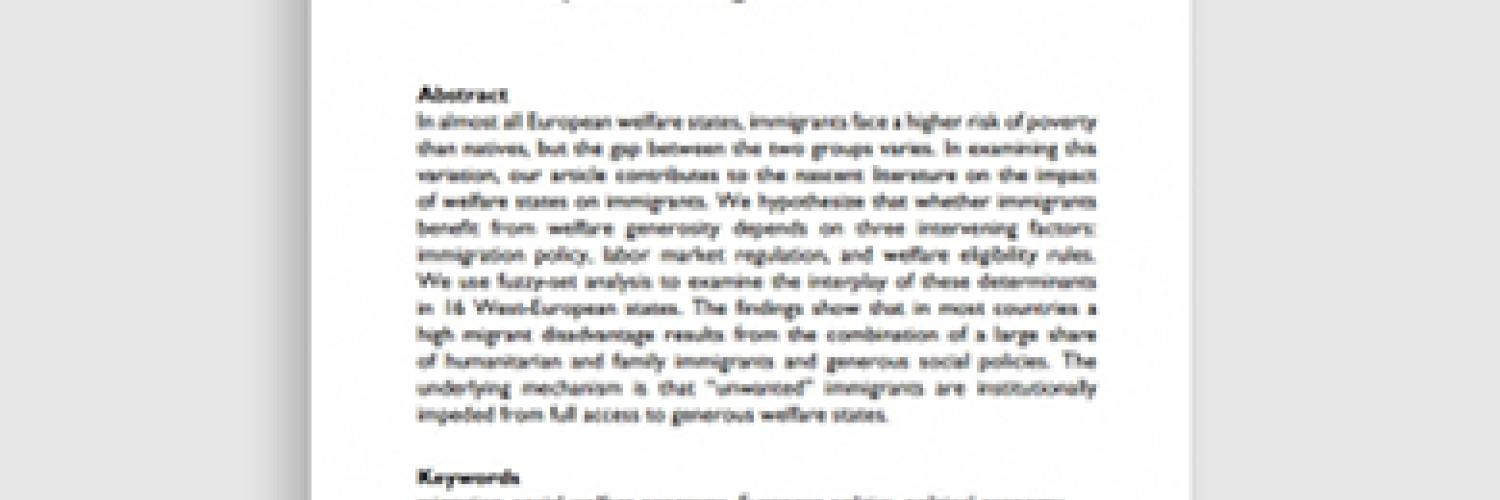
In almost all European welfare states, immigrants face a higher risk of poverty than natives, but the gap between the two groups varies. In examining this variation, our article contributes to the nascent literature on the impact of welfare states on immigrants. We hypothesize that whether immigrants benefit from welfare generosity depends on three intervening factors: immigration policy, labor market regulation, and welfare eligibility rules. We use fuzzy-set analysis to examine the interplay of these determinants in 16 West-European states. The findings show that in most countries a high migrant disadvantage results from the combination of a large share of humanitarian and family immigrants and generous social policies. The underlying mechanism is that “unwanted” immigrants are institutionally impeded from full access to generous welfare states.


